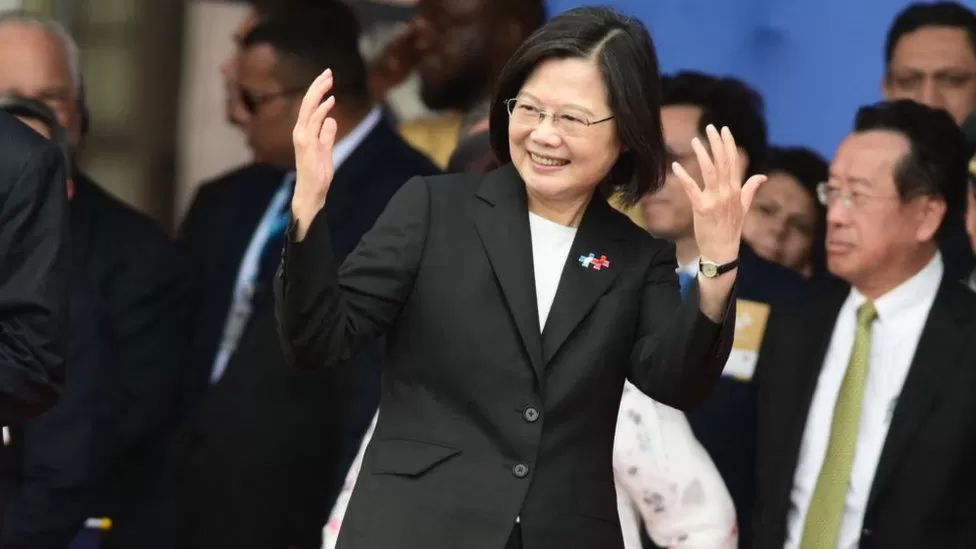A spooked and lonely Taiwan looks for new friends

The spotlight has been brought to democratic Taiwan,” said President Tsai Ing-wen last week in her last national day address before she steps down.
“Taiwanese will remain a democratic and free people for generations to come,” she added. This was both a declaration of the island’s identity and a plea for the world to preserve this vibrant, open society.
Taiwan’s legislator, You Si-Kun, touted the same credentials in his opening remarks: “The UK’s Economist Intelligence Unit ranks Taiwan the number one democracy in Asia.
Taiwan, which feels increasingly threatened by Chinese claims to its territory, cannot overstate the significance of these words.
In its pitch to the world for why Taiwan matters – and why it should be protected from being absorbed by China – “Democratic Taiwan” has become its brand. Taiwan has very few official friends despite being an $800 billion chip superpower.
Taipei used to have a military alliance with the United States and a seat on the UN security council. From Seoul to Santo Domingo, from Pretoria to Panama City, it was run as an anticommunist dictatorship.
Almost all of those Cold War-era friends are gone now. Taiwan faces a more serious threat now than ever before, and new allies are desperately needed.
At Tuesday’s ceremony, that challenge was evident.
